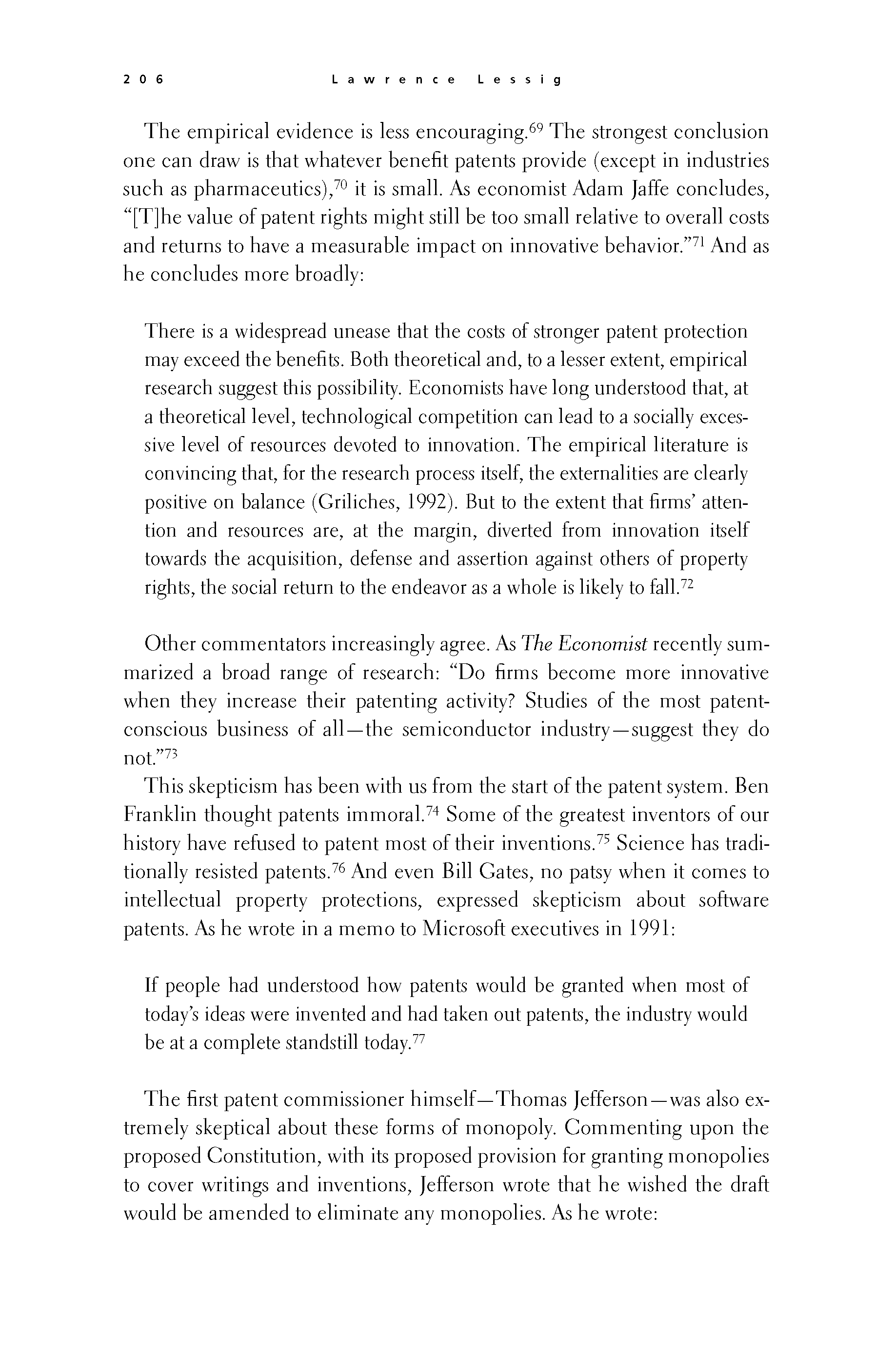 p205 _
-chap- _
toc-1 _
p206w _
toc-2 _
+chap+ _
p207
p205 _
-chap- _
toc-1 _
p206w _
toc-2 _
+chap+ _
p207
The empirical evidence is less encouraging.[11-69] The strongest conclusion
one can draw is that whatever benefit patents provide (except in industries
such as pharmaceutics),[11-70] it is small. As economist Adam Jaffe concludes,
"[T]he value of patent rights might still be too small relative to overall costs
and returns to have a measurable impact on innovative behavior."[11-71] And as
he concludes more broadly:
____ There is a widespread unease that the costs of stronger patent protection
____ may exceed the benefits. Both theoretical and, to a lesser extent, empirical
____ research suggest this possibility. Economists have long understood that, at
____ a theoretical level, technological competition can lead to a socially exces-
____ sive level of resources devoted to innovation. The empirical literature is
____ convincing that, for the research process itself, the externalities are clearly
____ positive on balance (Griliches, 1992). But to the extent that firms' atten-
____ tion and resources are, at the margin, diverted from innovation itself
____ towards the acquisition, defense and assertion against others of property
____ rights, the social return to the endeavor as a whole is likely to fall.[11-72]
Other commentators increasingly agree. As _The_Economist_ recently sum-
marized a broad range of research: "Do firms become more innovative
when they increase their patenting activity? Studies of the most patent-
conscious business of all -- the semiconductor industry -- suggest they do
not."[11-73]
This skepticism has been with us from the start of the patent system. Ben
Franklin thought patents immoral.[11-74] Some of the greatest inventors of our
history have refused to patent most of their inventions.[11-75] Science has tradi-
tionally resisted patents.[11-76] And even Bill Gates, no patsy when it comes to
intellectual property protections, expressed skepticism about software
patents. As he wrote in a memo to Microsoft executives in 1991:
____ If people had understood how patents would be granted when most of
____ today's ideas were invented and had taken out patents, the industry would
____ be at a complete standstill today.[11-77]
The first patent commissioner himself -- Thomas Jefferson -- was also ex-
tremely skeptical about these forms of monopoly. Commenting upon the
proposed Constitution, with its proposed provision for granting monopolies
to cover writings and inventions, Jefferson wrote that he wished the draft
would be amended to eliminate any monopolies. As he wrote:
[[206]]
p205 _
-chap- _
toc-1 _
p206w _
toc-2 _
+chap+ _
p207